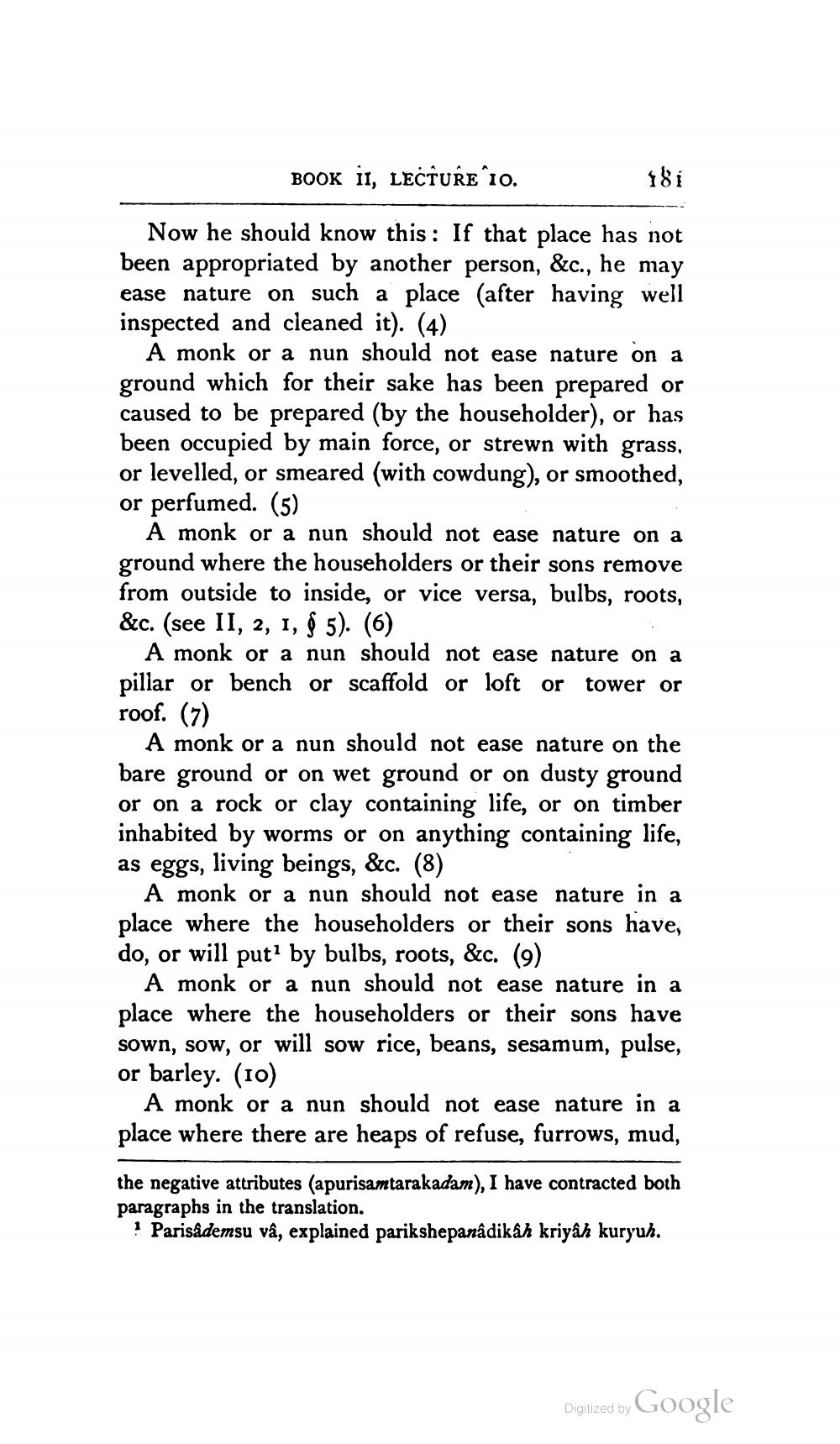________________
BOOK II, LECTUŘE 10.
18 i
Now he should know this: If that place has not been appropriated by another person, &c., he may ease nature on such a place (after having well inspected and cleaned it). (4)
A monk or a nun should not ease nature on a ground which for their sake has been prepared or caused to be prepared (by the householder), or has been occupied by main force, or strewn with grass, or levelled, or smeared (with cowdung), or smoothed, or perfumed. (5)
A monk or a nun should not ease nature on a ground where the householders or their sons remove from outside to inside, or vice versa, bulbs, roots, &c. (see II, 2, 1, $ 5). (6)
A monk or a nun should not ease nature on a pillar or bench or scaffold or loft or tower or roof. (7)
A monk or a nun should not ease nature on the bare ground or on wet ground or on dusty ground or on a rock or clay containing life, or on timber inhabited by worms or on anything containing life, as eggs, living beings, &c. (8)
A monk or a nun should not ease nature in a place where the householders or their sons have, do, or will put? by bulbs, roots, &c. (9)
A monk or a nun should not ease nature in a place where the householders or their sons have sown, sow, or will sow rice, beans, sesamum, pulse, or barley. (10)
A monk or a nun should not ease nature in a place where there are heaps of refuse, furrows, mud,
the negative attributes (apurisamtarakadam), I have contracted both paragraphs in the translation.
? Parisâdemsu vâ, explained parikshepanadikâh kriyâh kuryuh.
Digitized by Google




